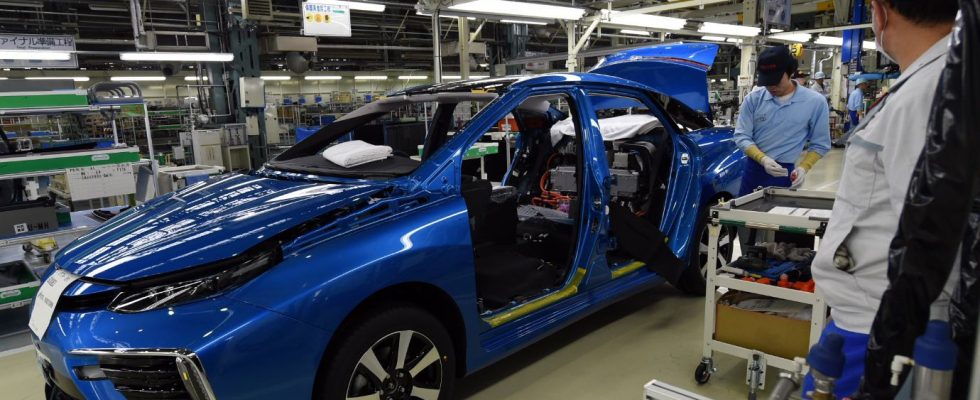By declaring his hydrogen flame at the end of 2021, accompanied by a check for 7 billion euros, Emmanuel Macron was thinking more of the plane and industry than of the automobile. However, manufacturers are beginning to take an interest in this non-polluting alternative energy – in theory.
Only 58 pumps in France
The principle ? Instead of being supplied with electricity by a battery, the engine uses a fuel cell, much lighter, powered by a mixture of hydrogen and dioxygen, the learned name of oxygen. The reaction between the two elements generates electricity. In short, a hydrogen car is an electric car that produces its own electricity. In absolute terms, the system is all the more virtuous as its exhaust emits nothing more dangerous for the environment than water vapour. Other assets, its comfortable autonomy and its recharging time: you fill up with hydrogen as quickly as a full tank of gas, at the pump – provided you find one, among the… 58 that there are to date ‘Hexagon.
Finally, hydrogen is everywhere, especially in water, of which it is one of the components, fertilizers or natural gas – and this is where the picture begins to blur. Its extraction and compression are indeed energy-intensive operations: today, it takes some 2 kWh of energy to produce 1 kWh of hydrogen. The result is a negative carbon balance, which becomes even heavier when the hydrogen comes from fossil sources. To restore the balance, it must therefore come from clean sources and use renewable energies. This is far from always the case.
Two models for individuals are offered on the French market, the Hyundai Nexo and the Toyota Mirai. They cost around 80,000 €, a high price which there is no indication that it will drop soon. This is, among other things, what makes François Gatineau, the president of Mobileese, a mobility consulting firm, say that “hydrogen is not suitable for light vehicles, but could be a solution for heavy vehicles. or the plane”. Same skepticism at Volkswagen, one of the world’s manufacturers most committed to electrical transformation. Its CEO, Herbert Diess, said recently that “fuel cell cars are not the answer” to the climate crisis. A first-class burial…before the resurrection? Ten years ago, the electric car had no better press.
What about synthetic fuels?
They are one of the reasons put forward by Germany for refusing to ratify the ban on the sale of thermal vehicles in Europe by 2035. With synthetic fuels resulting from the transformation of CO2, a “clean” alternative to fossil fuels, there would no longer be any need to scrap tried-and-tested modes of propulsion. Especially since they continue to make the fortune of manufacturers from across the Rhine, Porsche in particular, upwind against the obligation of all-electric. “We must have all the options”, explained transport minister Olaf Scholz to the European Commission.
In theory, it makes sense: the carbon footprint of the process of manufacturing synthetic methanol, the basic product of these alternative fuels, is no higher than that of the batteries of electric vehicles. What’s more, existing heat engines would easily adapt to it… were it not for the low production (55 million liters in 2025, compared to the 50… billion liters of fuel consumed in France in 2022) and its costs, very high. The price of the liter is today higher than 9 €…
